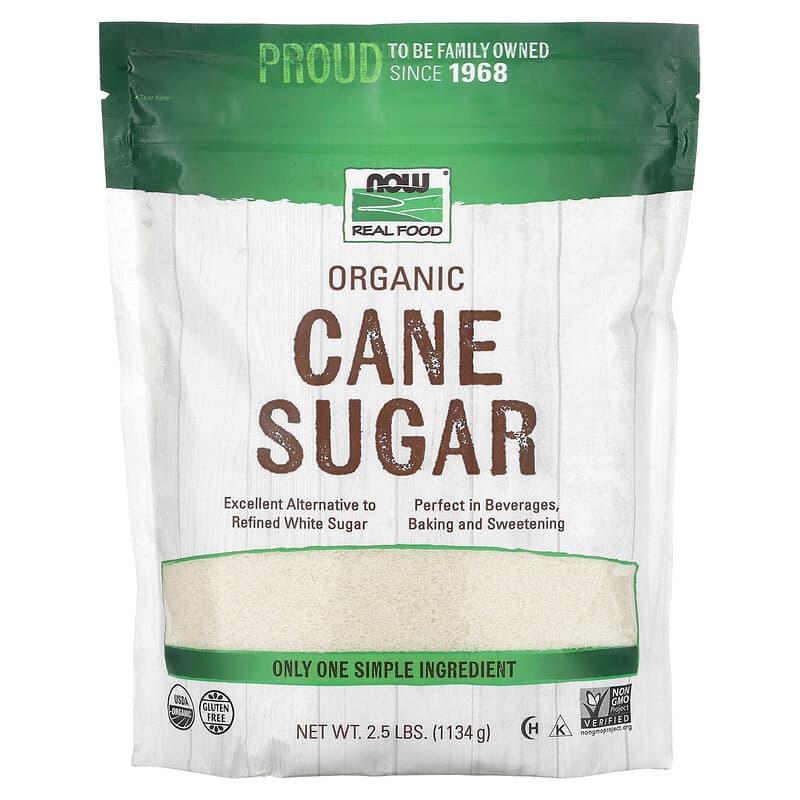Comparing Cane Sugar and High-Fructose Corn Syrup: What You Need to Know
The ongoing discussion surrounding sweeteners has left many health-conscious individuals pondering a crucial question: Is cane sugar genuinely a healthier option compared to high-fructose corn syrup (HFCS)? This sweetener debate has ignited extensive research, marketing efforts, and dietary guidelines, creating confusion about what is best for our health. Cane sugar is often perceived as a natural choice with an image of authenticity, while HFCS, commonly found in processed foods and beverages, has come under fire for its potential adverse health effects. In this article, we will delve into the origins, chemical makeup, and health consequences of both sweeteners by examining scientific findings alongside expert insights to clarify this often-misunderstood topic.
Nutritional Comparison of Cane Sugar and High-Fructose Corn Syrup
A closer look at the nutritional characteristics of cane sugar versus high-fructose corn syrup reveals several important distinctions that may affect consumer preferences. While both are used as sweetening agents, their compositions differ significantly. Cane sugar—scientifically known as sucrose—is a disaccharide composed equally of glucose and fructose. On the other hand, HFCS is derived from corn starch and contains varying proportions of fructose (typically between 42% to 55%) along with glucose. This difference can influence how these sugars are metabolized in the body and their respective impacts on overall health.
Furthermore, research links these sweeteners to various health outcomes. Although both cane sugar and HFCS contribute calories to our diets,studies indicate that excessive intake of fructose—particularly from HFCS—can lead to numerous health issues such as obesity, insulin resistance syndrome, and non-alcoholic fatty liver disease (NAFLD). Here are some key differences:
- Cane Sugar: Naturally sourced with an even ratio of glucose to fructose.
- High-Fructose Corn Syrup: Commonly found in processed foods; higher levels of fructose may disrupt metabolic processes.
- Caloric Content: Both provide similar caloric values per gram but can affect feelings of fullness differently.
Health Consequences Associated with Sweetener Consumption in Modern Diets
The increasing prevalence of sweeteners in everyday diets has led to significant discussions regarding their impact on human health. Among the most widely consumed options are cane sugar and high-fructose corn syrup (HFCS), which exhibit different metabolic responses within the body. Recent studies suggest that sucrose from cane sugar is metabolized more traditionally due to its balanced composition involving both glucose and fructose; this could help maintain stable energy levels throughout the day. Conversely, HFCS—with its elevated fructose content—may promote increased fat synthesis within the liver leading to heightened risks for metabolic disorders like obesity or type 2 diabetes.
Selecting between cane sugar or HFCS requires consideration of several critical factors:
- Metabolic Impact: Research indicates that HFCS may be more likely than cane sugar to contribute towards insulin resistance over time.
- Total Fructose Intake: Higher consumption rates associated with HFCS have been linked with increased triglyceride levels in blood tests.
- Satisfaction Levels: Some studies suggest that consuming cane sugar might result in greater feelings of fullness compared with HFCS consumption.
The potential dangers tied to excessive intake from either source highlight why moderation remains essential when it comes down choosing your sweeteners wisely; understanding how they influence long-term wellness empowers consumers toward healthier eating habits moving forward.
Expert Advice for Managing Sugar Consumption in Daily Nutrition
Additionally incorporating whole foods into daily meals naturally reduces total added sugars consumed without sacrificing flavor! Foods rich nutrients like fruits vegetables whole grains not only satisfy hunger but also provide necessary vitamins minerals alongside moderate amounts natural sweetness too!
A further recommendation includes cutting back on sugary drinks which can drastically inflate daily totals when it comes added sugars consumed each day replacing sodas juices flavored waters herbal teas instead offers hydration without unnecessary calories attached! Exploring alternatives like stevia monk fruit provides sweetness desired without contributing additional glycemic load typically associated traditional forms table topers either way finding balance becomes easier than ever before!
Final Thoughts on The Debate Between Cane Sugar And High-Fructosa Corn Syrup
In summary ,the question surrounding whether one should prefer usingcane sugartoverhigh frutocse cornsyrupsremains contentious fueled by ongoing investigations public perceptions alike .While many individuals gravitate towards believingthatcane sugara more organic alternative presents safer options ,scientific evidence suggestsboth substances yield similar ramifications upon excessive consumption .Moderation stands paramount since overindulgence regardless origin leads myriad complications includingobesity heart disease among others .Experts urge consumers remain vigilant concerning total intakesoftheirsugarsand prioritize wholesome ingredients over heavily processed ones .As food industries evolve alongside growing awareness amongst shoppers understanding nuances differentiating various typesweetnerswill continue play pivotal rolein making informed dietary decisions going forward ultimately highlighting importance continued education awareness regarding healthy habits!









